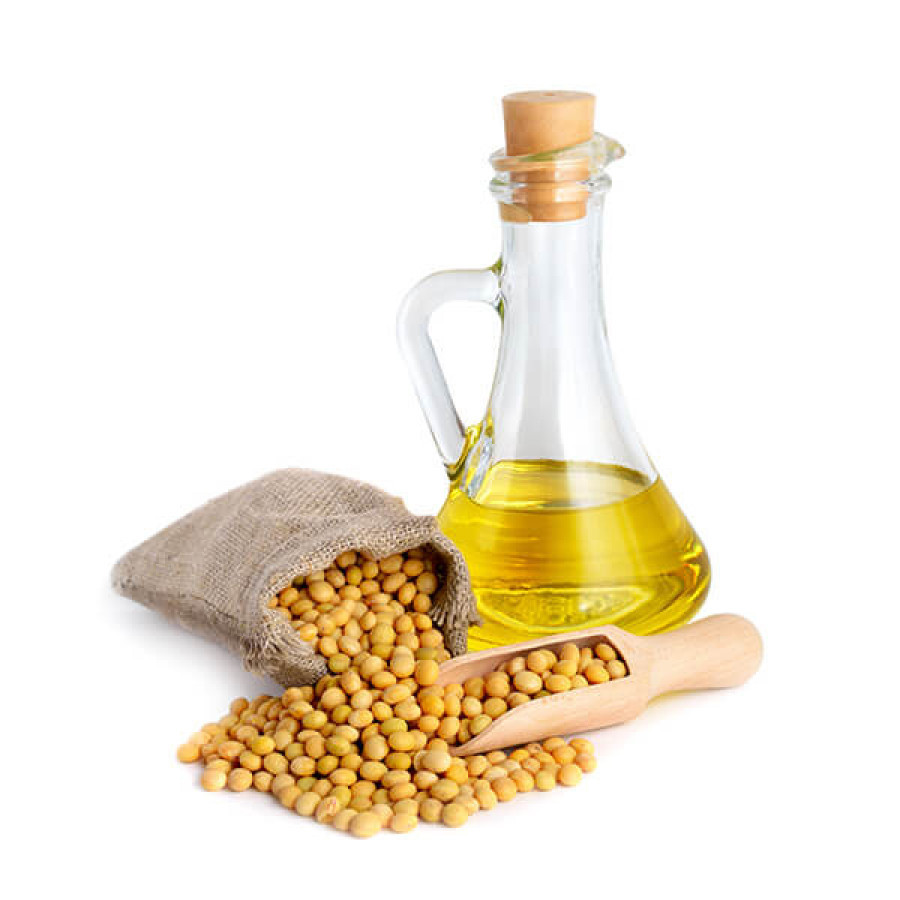Money
India asks Nepal to check authenticity of certificate of origin of soybean oil
Nepal produces little soybean oil, but it is the country’s largest export with shipments worth billions annually.
Krishana Prasain
With Nepal’s soybean oil exports starting to reach sky-high levels despite near zero domestic production, the Indian government has officially asked the Nepal government to check the authenticity of the certificate of origin issued to local exporters.
Soybean oil became Nepal's largest export in less than a year, knocking palm oil from the number-one spot, as traders switched products to continue exploiting trade preferential loopholes after the Indian government squeezed palm oil imports.
Nepal produces very little soybean oil, not even enough to fulfil its own requirement. Paradoxically, this vegetable oil, which is used in cooking, is Nepal’s top export commodity with shipments valued in the billions annually.
According to the Department of Customs, the country exported soybean oil worth Rs23.12 billion in the first eight months of the current fiscal year 2020-21 beginning mid-July, a threefold jump year-on-year. The exports totalled 151,708 tonnes.
During the same period in the last fiscal year, shipments amounted to Rs7.52 billion.
Nepal also imported crude soybean oil worth Rs24.04 billion in the first eight months of the current fiscal year, mainly from Argentina, Brazil, Paraguay, Egypt, Turkey and Ukraine.
India is becoming increasingly concerned as swelling Nepali exports are hurting Indian refiners and farmers, besides causing loss of revenue to the government, according to Indian media reports.
A certificate of origin is a document declaring in which country a commodity or good was produced or manufactured. The paperwork contains information regarding the product, its destination and the country of export.
It is required by many treaty agreements for cross-border trade, and can help determine whether certain goods are eligible for import, or whether goods are subject to duties.
Tariff exemptions on Nepali exports to India under the South Asian Free Trade Area (SAFTA) agreement give domestic traders an advantage. Countries outside of South Asia are slapped with tariffs of 54 percent on palm oil and 45 percent on soybean oil.
“Yes, there are some issues raised on the export of edible oil after the ban on palm oil,” said Prakash Dahal, joint secretary at the Ministry of Industry, Commerce and Supplies. “We have decided to discuss the issue with the associations concerned, mainly private sector organisations, whom we have authorised to issue the certificate of origin.”
A proof of origin is required to claim preferential tariff treatment. The government has authorised three associations—the Federation of Nepalese Chambers of Commerce and Industry, Confederation Nepalese Industries and Nepal Chamber of Commerce—to provide the certificate of origin.
The Solvent Extractors’ Association, one of the oldest associations of vegetable oil in India, said that there had been an influx of soybean oil from Nepal into India leading to the loss of revenue to the government.
It has also requested the government to take immediate steps to regulate the flow of refined edible oils into the country.
The association said that the current import duty on refined palmolein and on soya refined is 45 percent plus 10 percent Swachh Bharat Cess, a tax earmarked for a particular purpose.
The reports said that at current values, the Indian government was losing around IRs35,000 per tonne (Rs56,000) on refined soybean oil, and around IRs30,000 per tonne (Rs48,000) on palmolein oil coming via Nepal.
In January 2020, India’s Directorate General of Foreign Trade issued a notification putting refined palm oil trade under foreign trade policy from 'free' to 'restricted' commodity.
Nepali traders simply shifted to importing crude soybean oil and exporting the processed product to India instead of palm oil. Consequently, Nepal's palm oil exports plunged by 99.99 percent to Rs443,000 from Rs15.35 billion in the first eight months of the current fiscal year.
According to the Nepal Development Update released by the World Bank in December 2019, Nepal capitalised on this arbitrage opportunity and significantly increased exports of the two products—palm oil and soybean oil. “However, it might not be a sustainable option in the long run,” the report said.
“The Indian embassy has sent documents related to a dozen suspicious cases of exploiting the certificate of origin. We are dealing with the issue,” Dahal told the Post. “We will respond to the Indian government accordingly once we investigate the matter and discuss with the concerned authorities.”
Last week, the embassy wrote to Nepal’s Ministry of Foreign Affairs to 'confirm the genuineness and authenticity' of the originating criteria of the certificate of origin issued by Nepali authorities for the export of edible oil to India under SAFTA.
The embassy has asked to respond in three months 'using the time limit for the parties to respond using the Article 15 of the Operational Certificate Procedure for SAFTA rules of origin'.
“The concerned authorities of the government of India would be at liberty of taking suitable action in this matter,” reads the letter sent to the ministry, a copy of which was posted by ekagaj.com news portal.
The SAFTA agreement, to which Nepal is a party, stipulates that goods with preferential origin are eligible to be imported and re-exported with lower duty rates or at zero rates if the requirements are met.
For Nepali exports to India to be eligible for tariff exemptions under this treaty, imported goods need to have at least a 30 percent value addition. Nepali trade experts have been saying that Nepali traders do not meet the 30 percent value addition requirement.




 8.54°C Kathmandu
8.54°C Kathmandu














